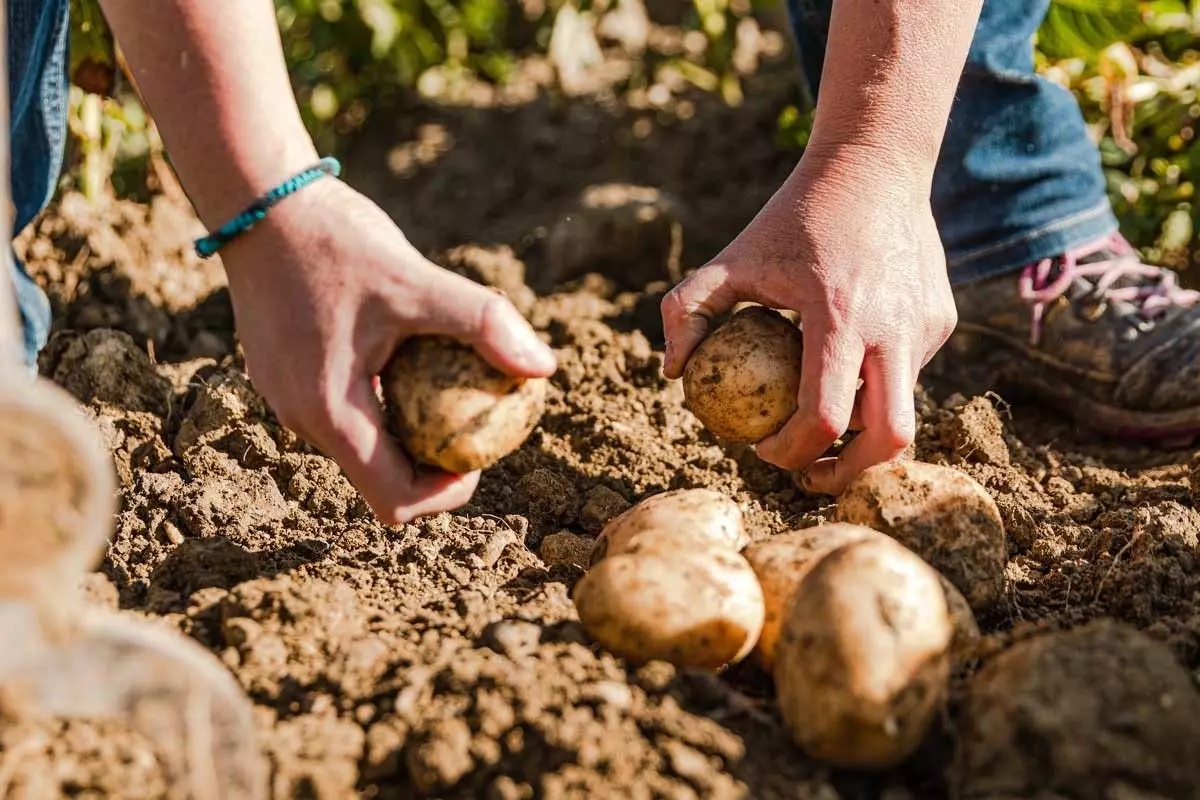
Picking potatoes in La Cerdanya
Would you be able to lead a herd ? have you tidy ever a cow? Do you know how to collect potatoes ? During the lockdown, many people reconsidered the (sometimes) stressful life in the city to leave everything and move to the (idyllic?) rural life. Would you dare to put on your boots and be farmer for a day? Now that measures are relaxed, several farms open their doors to live the experience in first person and discover much more about their day to day.
The next October 2 and 3 will be held in Catalonia Welcome to Pagès (Welcome to Payés), a conference in which more than 200 farms from all over the territory will open their stables, fields and workshops to bring them closer to the public. You will be able to meet the people who are dedicated to it, participate in hundreds of activities and buy some of the products they make. It will already be the sixth edition of a proposal that is gaining popularity and that last year celebrated its virtual version with more than 300,000 views. But since there are still a few months to go, we are going to break down some activities and workshops in which you can participate from now on.
to pick potatoes
Do you know how potatoes are grown and harvested? Or what is each variety for? This is the objective of a project that has just been launched in La Cerdanya and that under the name of La trumferia offers the possibility of visiting the fields, participating in the harvest and cooking them on the same land.
One of the souls of the project is Theresa Turner , daughter of farmers and at the head –with her partner– of More Montagut , a cattle farm with certificate ecological since the 1990s. “The idea is that people arrive, can enjoy the crops and pasture (because they also raise Bruna del Pirineo cows), participate in the harvest and enjoy after our outdoor space where we will have a food trucks to cook different recipes and accompany them with a tasting of sauces”.
Teresa explains that until a few years ago they produced large quantities of potatoes that they distributed wholesale, but they decided to change the model to focus their sales on individuals, local stores and restaurants. They are sure that in this way they offer better care to everyone. If you want to try some sour potato chips –freshly picked– with barbecue sauce , Teresa's favourites, you just have to sign up for her initiative.
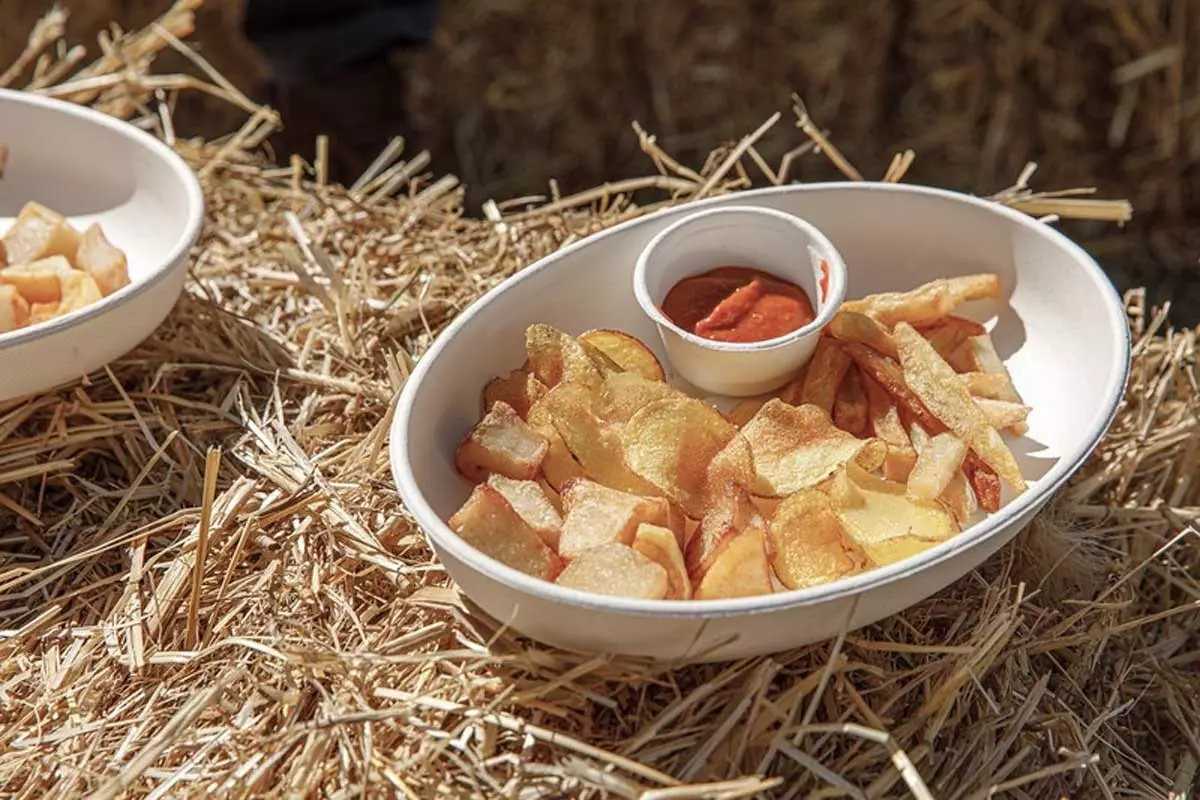
Sour Potato Chips with BBQ Sauce
Would you know how to guide a herd of goats?
In this case everything starts with a farmhouse near Capafonts (Tarragona) , where Sergi, the shepherd, gives an appointment to all those who want to learn a little more about his trade. The first impression could not be better: seeing a herd of goats go down the hill, guided by Sergio and his dog , stands at our feet.
“From there we go together in the direction of the farm , we make the dogs work, we pass by the river, we tell anecdotes and we also observe the plants and trees that are along the way. We explain, in short, how is our day to day , and if the occasion allows it, we also teach organize . It's very nice because people ask a lot of questions, they're curious and some topics lead you to others”, he tells us.
The walk continues until it would . Because Sergi and Eva, his partner, make cheese: from the Vall de Brugent, made entirely by hand. When they started, now a little over 15 years ago, few thought they would make it. They had decided to quit their respective jobs and buy the goats of a retiring herder. And although it is hard, they are very happy with their decision. In addition, they invest time in showing their day to all those who want to be interested.
"The city people It is very disconnected from the earth and it is nice that they reconnect”. Not only individuals go there, but also companies that with their teams seek to do group dynamics and have a good time trying milk goats or making an effort to make the dog pay attention to them. "Because they don't know", Sergi reveals with a laugh, "that they only do what I say".
Move between 60,000! bees
David has some 200 hives and he offers the possibility of putting on a beekeeper's suit to get a little closer to the almost 60,000 bees that live there. In Mel dels Erms, in the Montseny Natural Park, they produce rosemary honey in spring, of chestnut and heather in autumn and multifloral all year. He also teaches how to make the extraction and the whole process until packaging. And he assures that it is an activity for all audiences.
David was a plumber and after the economic crisis he decided to reinvent himself. His brother gave him a book about bees and he realized that he did not know many things. He became interested in the subject until he took charge of this business and currently becomes the President of the Ecological Beekeepers of Catalonia.
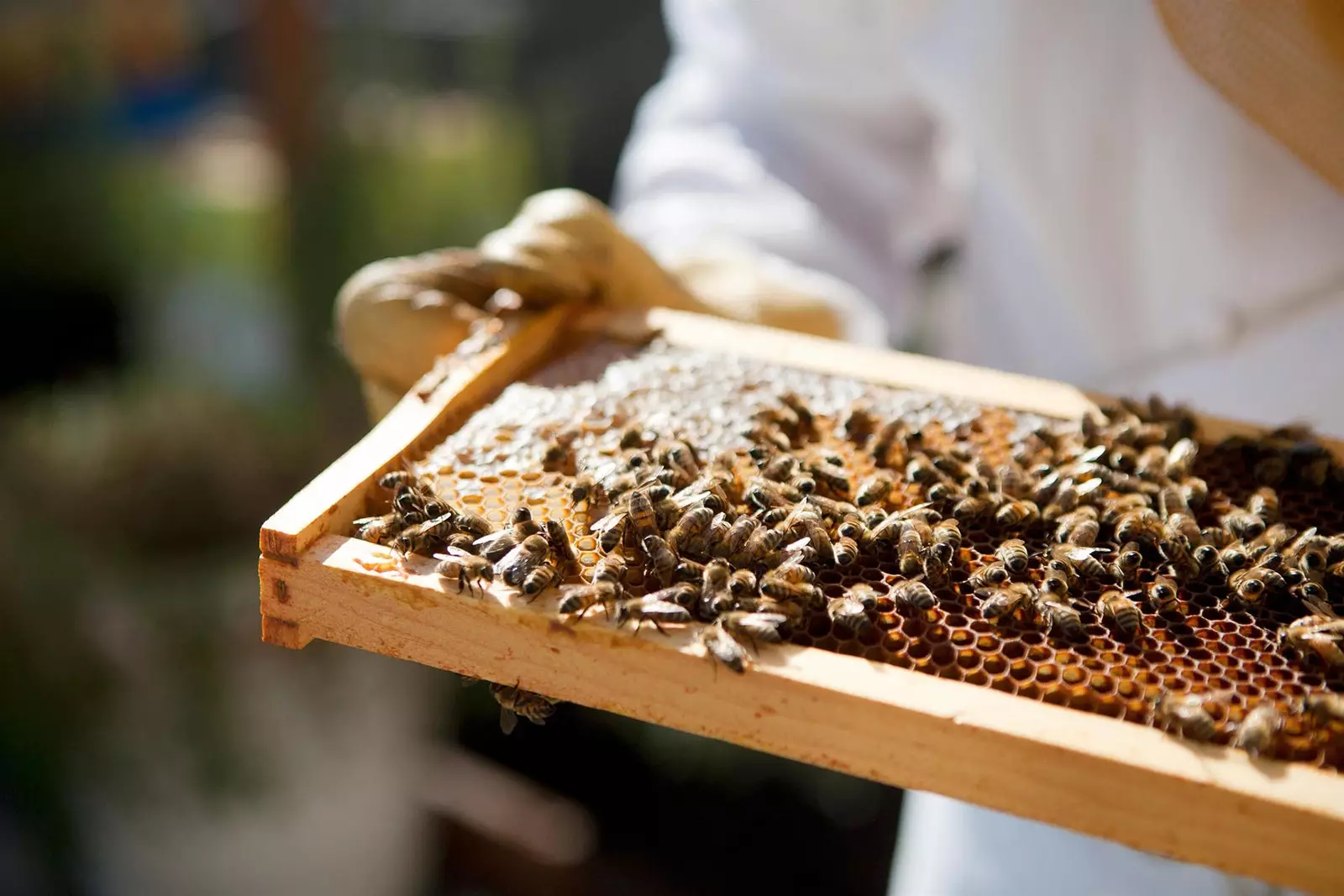
Travel to coexist and learn from them: the bees
Raise sheep. Where do we start?
In the Mas Casas de Cruïlles (Baix Empordà) they have just celebrated the day of the sheared . It is done once a year and that is when they teach how the shearers work and what they do with the wool.
For more than 80 years, a flock of sheep has been cared for in this house. They had reached more than 1,000 but due to family and health circumstances, they reduced the number until Anna and Salvi –the third generation– had to take over the operation. Until then, Anna had been working in the tourism sector and Salvi worked as a technical architect. They left their professions and decided to give a change of course to the farm, while taking advantage of the occasion to bring livestock closer to other people.
“I really like to explain what we do, to interact and make a visit with the five senses”. Throughout the year they organize all kinds of activities, always based on the cycle of nature: you can plant strains, make a workshop to know the principles of the ecological garden and even days of mindfulness between sheep and olive trees! Mas Casas produces meat and milk, but also cottage cheese, kefir and natural cosmetics based on accredited sheep's milk for sale in pharmacies; in addition to quality wool for different uses.
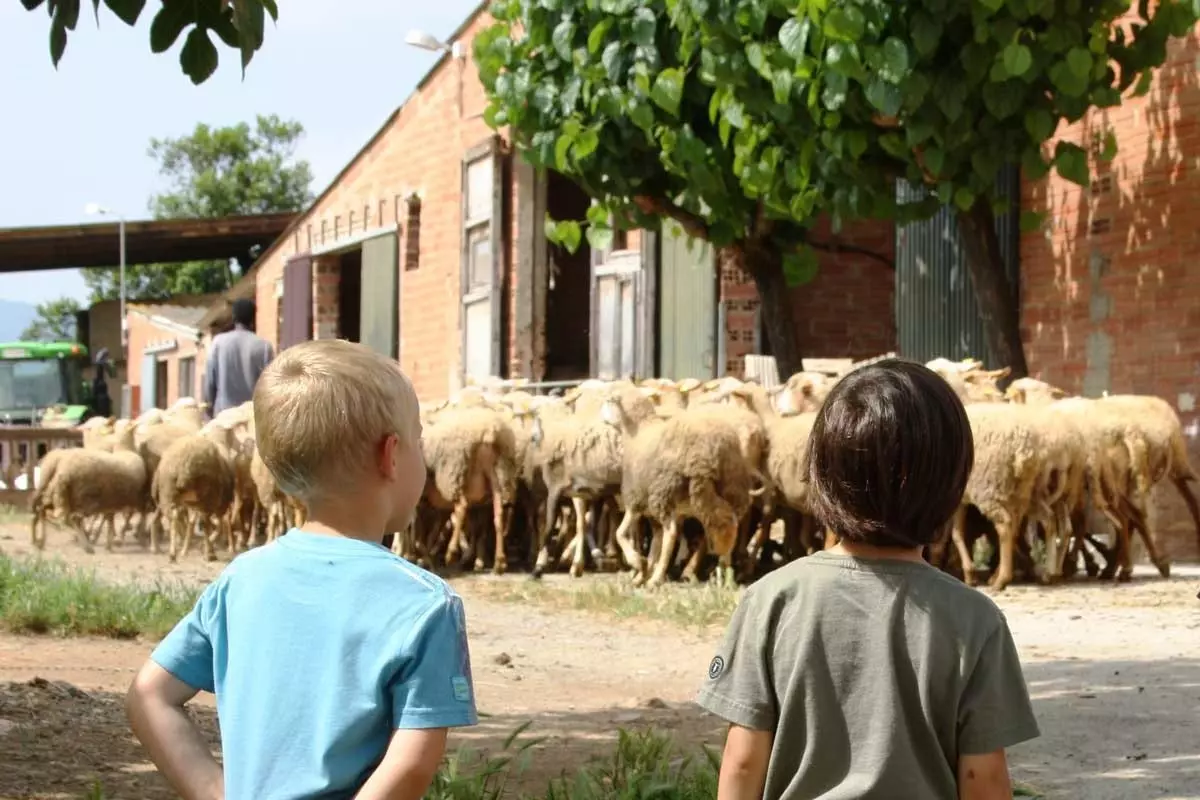
Family visit to learn how to raise sheep
Pick your own strawberries
Two years ago Pep, the person in charge of Can Marpons, began visiting his Strawberry fields . He did it because he saw that people were interested in the subject and decided to offer them the chance to get to know this plantation of the Maresme , learn more about its history and the evolution of cultivation. In addition to allowing visitors to participate in the pickup of strawberries to take away a small tray.
The business was started by his father in the 1960s and Pep has continued to bet on a quality product and escaping from the most commercial circuits. "The great productions They look for a good appearance and above all that they withstand transport. We want it to have the optimum ripening point and be good. Let it taste good. This is the priority.” The advantage of the Maresme, explains Pep, is its orography. The slope allows us to advance to other producing areas and to find Maresme strawberries on the market when there are still none.
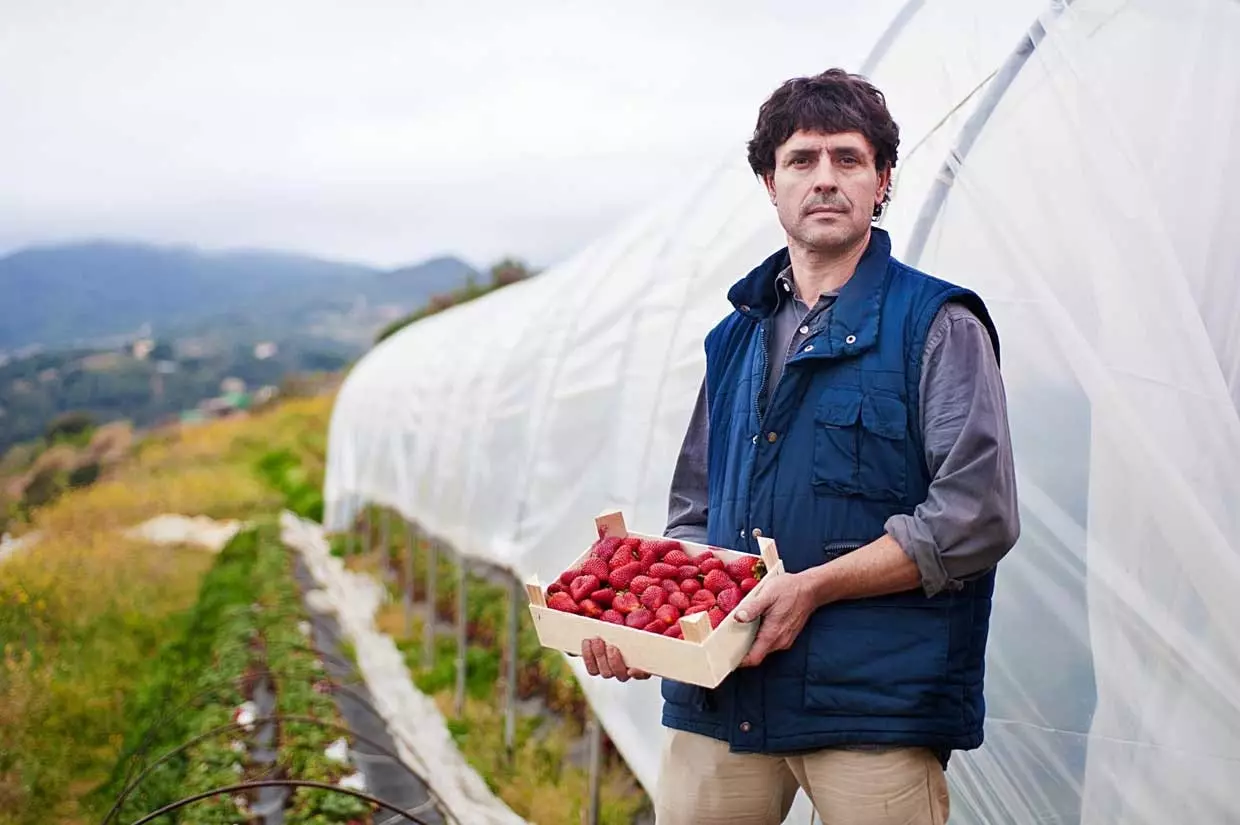
Production outside the commercial circuit, the mission of this Maresme plantation
Make cheese, like before
Formatges Pujol Orra is a small ecological farm family located in Les Llosses (El Ripollès) . It has about thirty cows and they convert all the milk into cheese on the same farm. Always at hand, which is how they like to do things. They know that this makes them less competitive at the price level because they spend many hours at work and have a smaller production, but they want to claim and value a different way –or the way they have always done– of doing things.
They invite all those who spend so many hours in front of a computer to have contact with this manual tradition of animals and trades to look closely the whole process. “Since the workshop is small – Neus Puig-Pey Orra, third generation of the family, tells us – we offer the possibility to small groups to do a workshop to get to know up close how make the cheese ”. Actually, it is a process that requires two days, but it is organized so that they can participate in some of the most attractive parts for the visitor, such as the moulding.
“Once done, we take them to see how it matures and we make a tasting . People like cheese and are curious, and this shows in the questions they ask us, as well as when they realize that cheese is never the same and that it depends a lot on what the cows have eaten that day”.
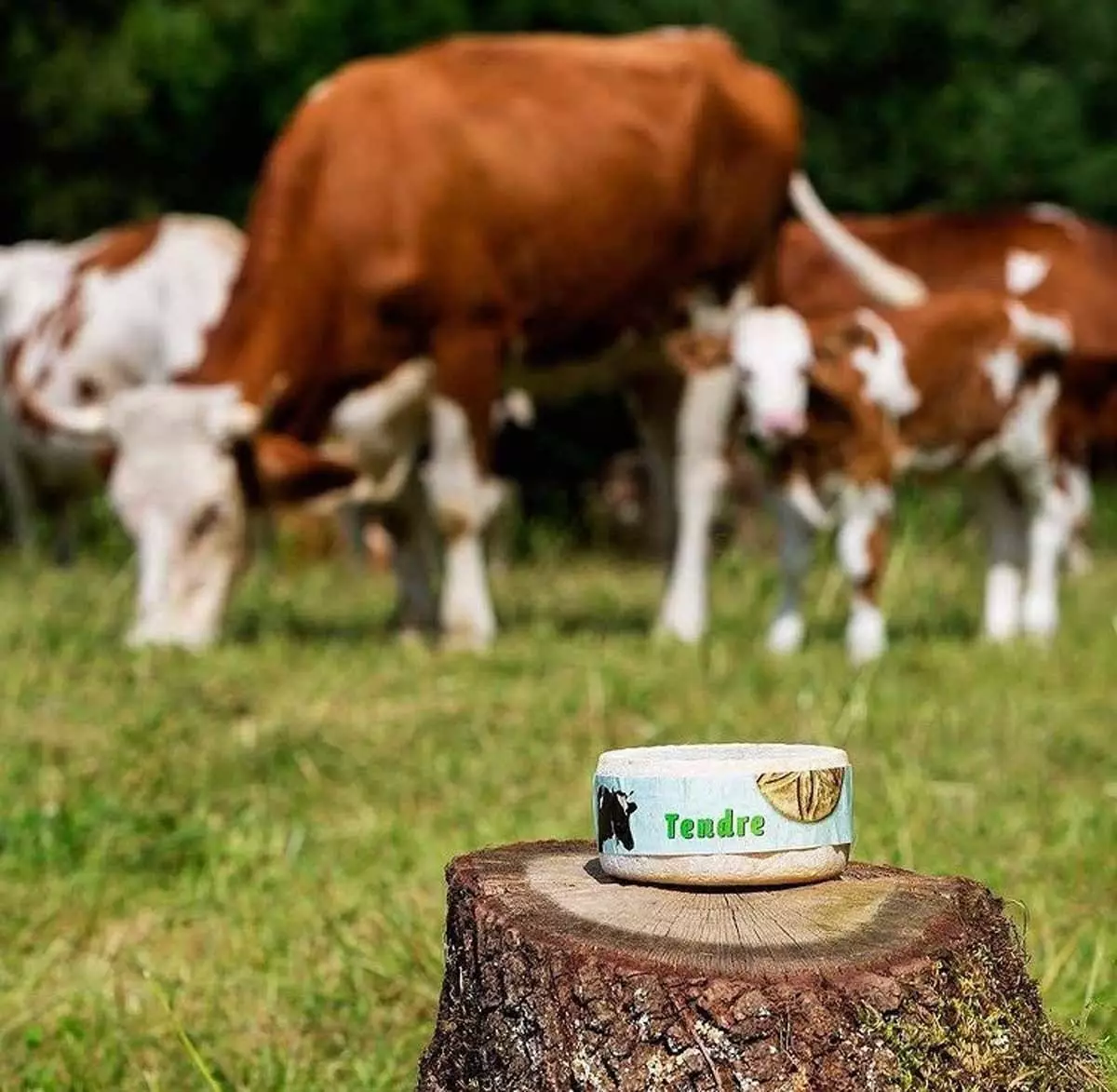
Learn to make cheese in a small family organic farm
Pick olives for your own oil
Between the end of October and the end of January, we can go to collect olives in the Montsia (Tarragona). There, at the Molí de la Creu, they invite you not only to participate in this process, but also to learn the techniques and tools to make your own oil . Extra virgin olive oil of which we can also taste varieties such as Morrufa, Farga, Sevillencao Marfil.
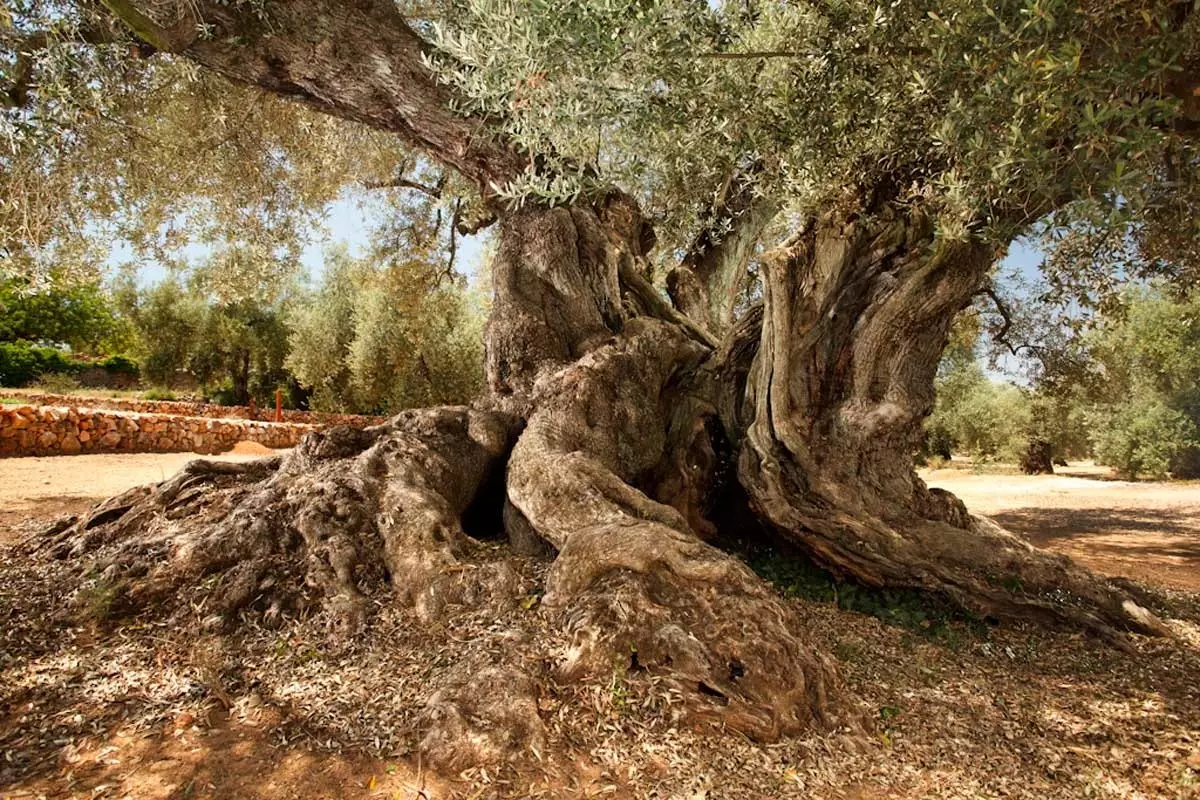
Do you want to learn how to make your own EVOO?
An eco garden in the heights
In La Cerdanya , at an altitude of 1,200 meters, a ecological garden which is quite a challenge. It is called El Verger Cerdà and in winter it is capable of producing up to 18 different varieties of vegetable despite the -20 °C reached. They achieve this by applying the same techniques used in cold regions such as Sweden or Québec and always seeking the solution to these challenges in nature itself: in spring, for example, they take advantage of dry leaves to attract the sun and in summer they use white straw so that it does not shine. so much heat
david isern is the leader of this project that proposes “ecological alternatives for a healthier and more respectful diet with the environment". “More than farmers we are microorganism farmers . Nowadays, vegetables grown with the conventional production system have fewer and fewer nutrients and a soil rich in microorganisms provides minerals to the plants. It is very important to choose organic food. David believes in the power of consumers to change the world “with things as basic as going to the market or a grocery store. It is important to be able to eat local and proximity products . This is the only way to achieve food sovereignty”.
In El Verger Cerdà we find a greenhouse , cultivation beds, an edible forest with more than 200 varieties of plants , an orchard area where they make research , a 100% ecological and chemical-free apple plantation and even a bee area. In 2017 they started their own permaculture, and above all this project and its philosophy can be learned during the visits and activities that they propose. There are for all ages: groups are made for adults more interested in permaculture theory, others with children accompanied by a guide who can see animals, feed them, collect eggs, see sheep and, finally, a mixed option for families. with younger children.
“Depending on the time of year, the experience is different. There are months when people see how we plant, they can also discover the collaboration between plants, learn which wild plants can be eaten. In summer, for example, we take a basket and collect vegetables or fruits. People really enjoy the experience.” And for those who plan to enjoy a few more days in the area, they have an incredible Eco Resort to stay at.
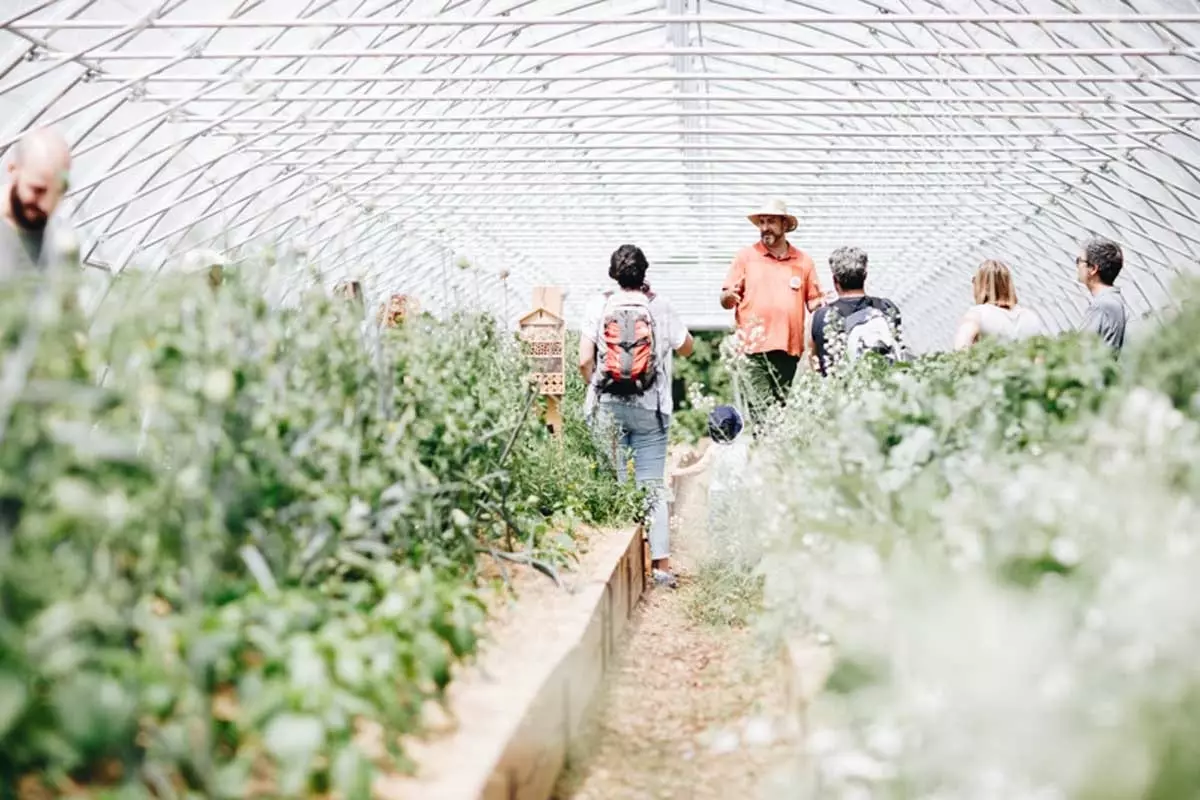
An organic garden in La Cerdanya
Day-to-day life in a farmhouse with a dairy tradition: Mas La Coromina and Mas Bes
In Mas La Coromina, in the Vall d'en Bas (La Garrotxa, Girona) there are already three generations of peasants. Now also with a more educational aspect to explain to people what a traditional house is like on a dairy farm with 260 head of cattle. all with ecological production . From there, isabel castanyer claims that "the primary sector is the great unknown" and that is why they appreciate the interest of the people who come to them. “When they visit us, they not only get to know us and value the product, but also the entire sector. In our case, there is always a farmer who takes care of the cattle every day, who has cleaned, milked, and fed the animals even on Christmas day. We eat three times a day and what we put in our mouths, someone else has produced.” now they receive families, schools and groups all year round to show us how a cow is fed and milked, taste the milk and its derivatives or give us the opportunity to go to the orchard to pick up some of the products at the foot of Puigsacalm.
The history of Mas Bes begins at the end of the 19th century with Narcís Viñolas and the purchase of a farmhouse in Salitja (Girona) and four cows in Santander. Today, a few years and generations later, the number of animals reaches 1,200 without ever having bought any off the farm. The adventure what lies behind we discover them in the visits they offer. Routes that begin in front of the farmhouse and that soon bring us closer to the possibility of the little ones interacting with their animals: “Power play the goats, feed the lambs, doing a workshop to prepare the corn that the hens will eat, feeding the cows or milking a plastic one to learn how it was traditionally done, are some of the things that can be done”, he explains. Josep Vinolas, third generation of the family. Then it's time to approach the biogas plant to see how they produce electricity and we also discovered 300 photovoltaic panels. Milk tanks, a small documentary and even a rural museum with objects from the family and others from neighbors in the area that have also been recovering complete this journey through the past and present of the rural world.
Have you already decided? Choose a date, get comfortable and become a peasant… for a day. And if you want more, also discover other proposals in "Benvinguts a Pagés, tot l'any" (Welcome to peasants, all year round). You will know closely where what we eat is born and who knows, even if you decide to make the real leap to rural life.
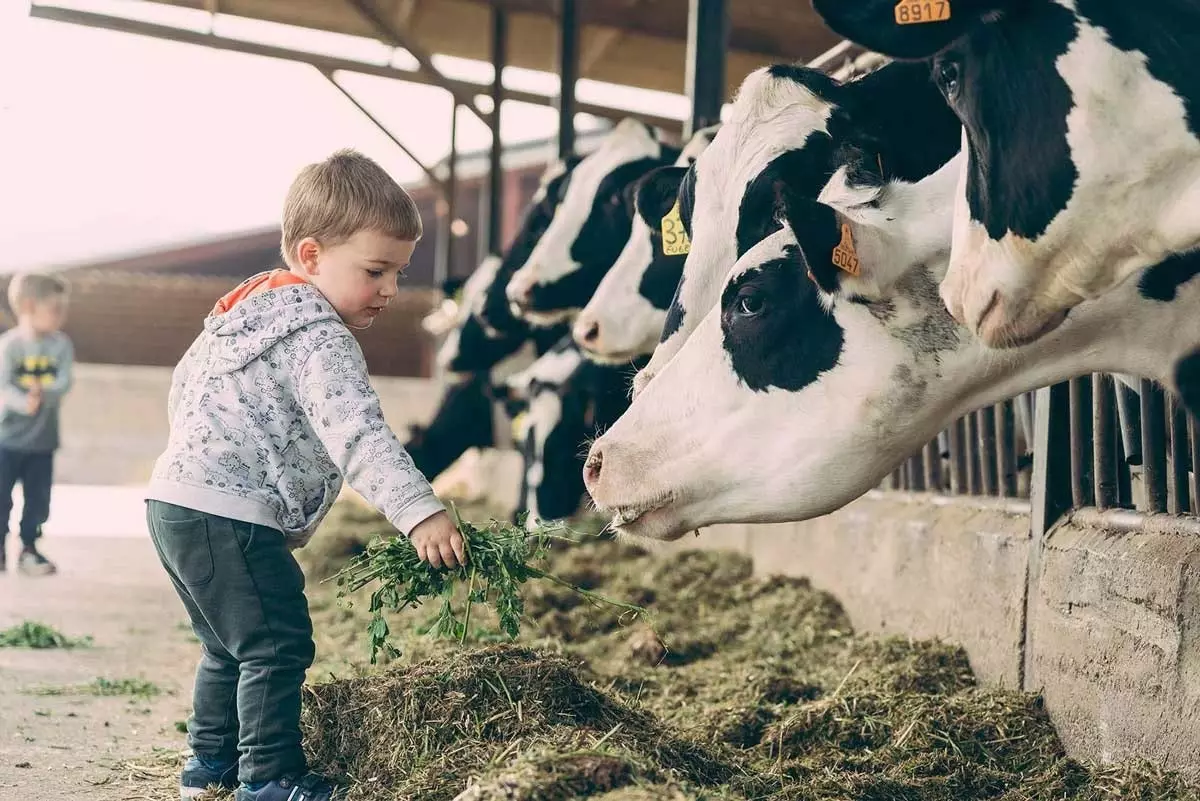
Mas Bes, owned by Josep Viñolas
